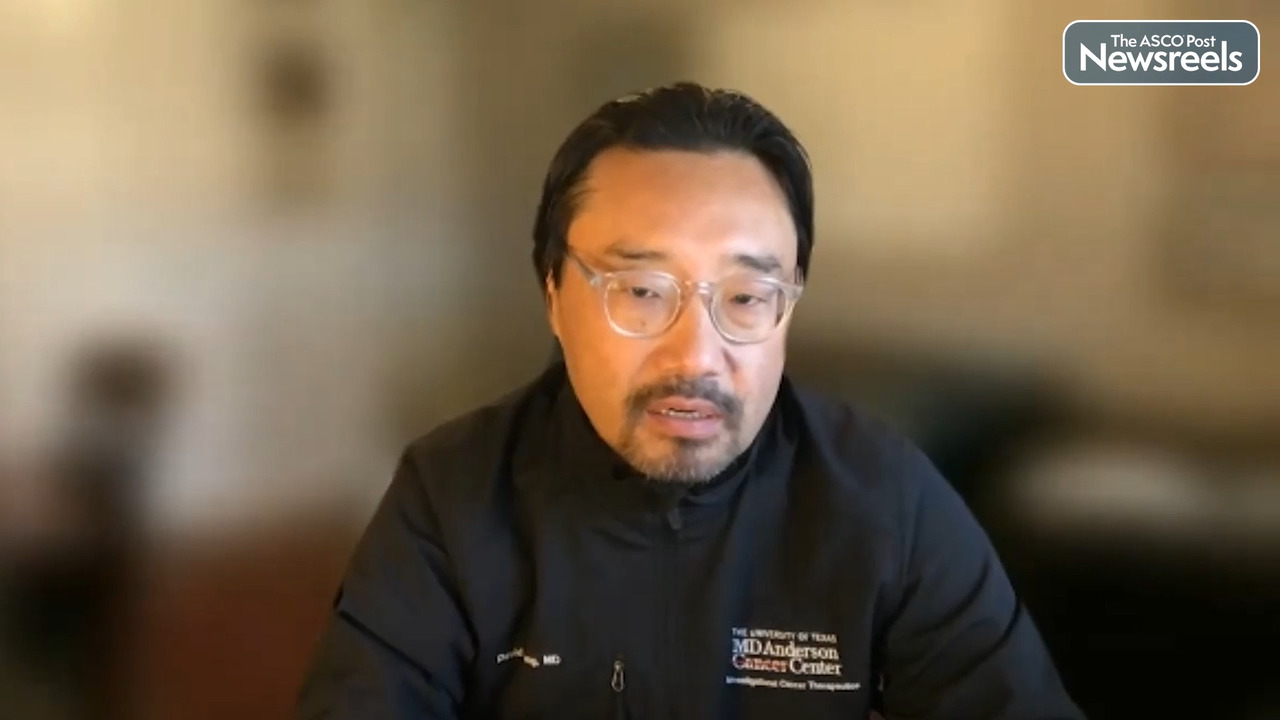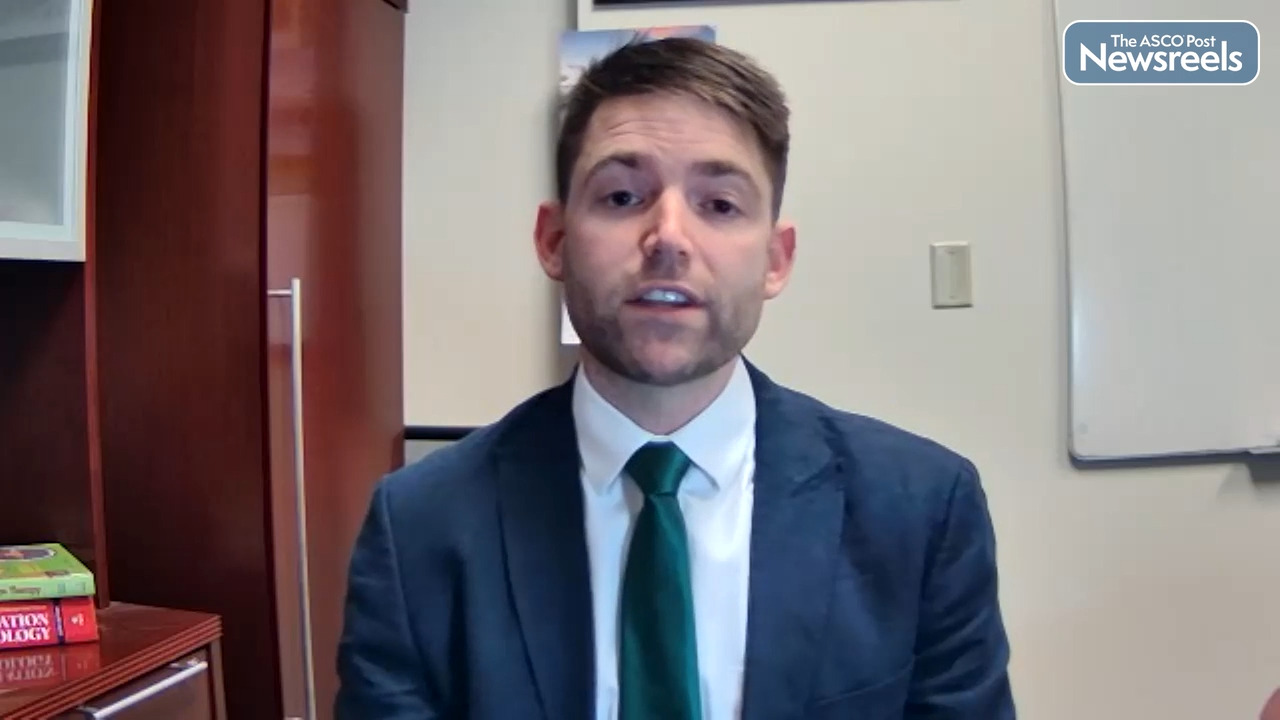Sue S. Yom, MD, PhD, on Thyroid Cancer: Expert Perspective on the State of the Field
2022 Multidisciplinary Head and Neck Cancers Symposium
Sue S. Yom, MD, PhD, of the University of California, San Francisco, discusses some of the latest developments in thyroid cancer, including the mutational landscape, therapies for high-risk and anaplastic diseases, and multimodalities for aggressive differentiated thyroid cancers.
The ASCO Post Staff
David S. Hong, MD, of The University of Texas MD Anderson Cancer Center, discusses results from a phase II cohort, which suggest favorable antitumor activity with tisotumab vedotin-tftv in patients with head and neck squamous cell carcinoma that has progressed after treatment with a platinum-containing regimen. Additional research is warranted, says Dr. Hong, in the second-line setting as well as in treatment-naive patients in combinations with pembrolizumab and carboplatin.
The ASCO Post Staff
Glenn J. Hanna, MD, of Dana-Farber Cancer Institute and Harvard Medical School, discusses findings that show human papillomavirus circulating tumor DNA (HPV ctDNA) may be useful as part of surveillance monitoring of patients with oropharyngeal squamous cell carcinoma. Dr. Hanna reports that 93% of patients who had no clinical evidence of disease developed a positive HPV ctDNA test during surveillance follow-up and subsequently had confirmed disease recurrence.
The ASCO Post Staff
Michelle Mierzwa, MD, of the University of Michigan, discusses early findings from a phase II trial of FDG-PET (fluorodeoxyglucose–positron-emission tomography) de-escalated radiotherapy for patients with p16-positive orophyaryngeal cancer. An interim analysis suggests that for approximately half of patients with stage I or II disease, this type of treatment may decrease toxicity and improve quality of life.
The ASCO Post Staff
Phillip Pifer, MD, PhD, of the UPMC Hillman Cancer Center, discusses findings that suggest focal adhesion kinase is a potentially important target for therapeutic sensitization in patients with mutant TP53 HPV-negative head and neck squamous cell carcinoma.
The ASCO Post Staff
Nancy Lee, MD, of Memorial Sloan Kettering Cancer Center, discusses results from the 30ROC trial, which showed that intratreatment FMISO [(18)F-fluoromisonidazole] PET response could identify patients with human papillomavirus–positive oropharyngeal carcinoma who may be sensitive to radiation therapy. Based on this information, researchers were able to de-escalate radiotherapy to 30 Gy from the standard 70 Gy, in the setting of chemotherapy (Keynote II).





